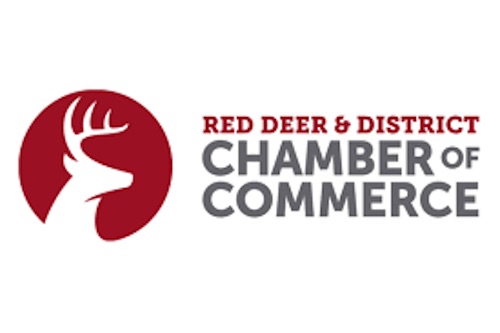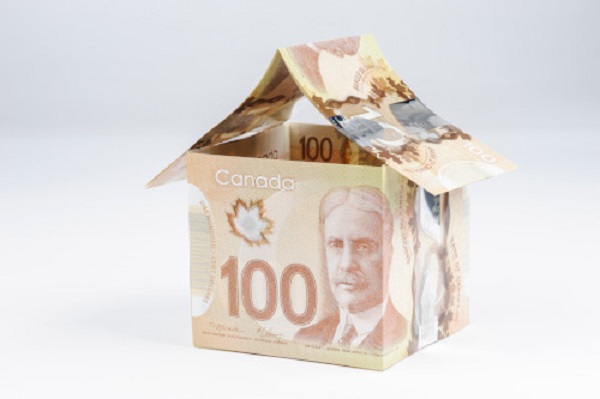Housing
Red Deer & District Chamber of Commerce Form Task Force on Homelessness

News release from the Red Deer & District Chamber of Commerce
The Red Deer & District Chamber of Commerce (the Chamber) has formed a Task Force to better understand the homelessness situation in Red Deer and identify areas where the business community can help address the issue and affect change.
Chaired by local community leader and business owner Lyn Radford, the Task Force consists of business owners and leaders in the Red Deer business sector.
“We all have a role to play in a vibrant and thriving Red Deer,” said Radford. “The Red Deer & District Chamber of Commerce recognizes that effectively addressing homelessness requires a collaborative approach involving the government, social sector organizations, businesses, and residents working together.”
“As Red Deerians, the Task Force members understand that addressing homelessness will contribute to the overall well-being and livability of the community that we are proud to call home,” add Scott Robinson, Chief Executive of the Chamber. “And as members of the business community, they have a vested interest in understanding the homelessness situation to help enhance the economic viability of our community.”
The Chamber announced its intention to launch a Task Force on Homelessness in March 2023. Currently, the Task Force is completing an environmental scan to understand the scope of the homelessness situation before engaging in consultations with the broader Red Deer community through a series of community consultations. Community consultations are anticipated to launch in the fall, with an interim report of findings available in early 2024. A final report will be made public in the spring of 2024.
Once scheduled, information on the community consultations will be shared publicly on reddeerchamber.com.
2025 Federal Election
Voters should remember Canada has other problems beyond Trump’s tariffs

From the Fraser Institute
By Jake Fuss and Grady Munro
Canadians will head to the polls on April 28 after Prime Minister Mark Carney called a snap federal election on Sunday. As the candidates make their pitch to try and convince Canadians why they’re best-suited to lead the country, Trump’s tariffs will take centre stage. But while the tariff issue is important, let’s not forget the other important issues Canadians face.
High Taxes: As many Canadians struggle to make ends meet, taxes remain the largest single expense. In 2023, the latest year of available data, the average Canadian family spent 43.0 per cent of its income on taxes compared to 35.6 per cent on food, shelter and clothing combined. High personal income tax rates also make it harder to attract and retain doctors, engineers and other high-skilled workers that contribute to the economy. Tax relief, which delivers savings for families across the income spectrum while also improving Canada’s competitiveness on the world stage, is long overdue.
Government Debt: At the end of March, Canada’s total federal debt will reach a projected $2.2 trillion or $52,094 for every man, woman and child in Canada. The federal government expects to pay $53.7 billion in debt interest costs in fiscal year 2024/25, diverting taxpayer dollars away from programs including health care and social services. The next federal government should rein in spending and stop racking up debt.
Red Tape: Smart regulation is necessary, but the Canadian economy is plagued by a costly and excessive regulatory burden imposed by governments. Regulatory compliance costs the economy approximately $12.2 billion each year, and the average business dedicates an estimated 85 days towards compliance. The next federal government should cut undue red tape and make Canada an easier place to do business.
Housing Affordability: Canadians across the country are struggling with the cost of housing. Indeed, Canada has the largest gap between home prices and incomes among G7 countries, and rents have spiked in recent years in many cities. In short, there’s not enough housing to meet demand. The next federal government should avoid policies that stoke further demand while working with the provinces and municipalities to remove impediments to homebuilding across Canada.
Collapsing Business Investment: Business investment is necessary to equip workers with the tools, technology and training they need to be more productive, yet business investment has collapsed. Specifically, from 2014 to 2021, inflation-adjusted business investment per worker fell from $18,363 to $14,687. Declining investment has helped create Canada’s productivity crisis, which has led to a decline in Canadian living standards. Clearly, Ottawa needs a new policy approach to address this crisis.
Declining Living Standards: According to Statistics Canada, inflation-adjusted per-person GDP—a broad measure of living standards—dropped from the post-pandemic peak of $60,718 in mid-2022 to $58,951 by the end of 2024. The next government should swiftly reverse this trend by enacting meaningful policy reforms that will help promote prosperity. The status quo simply will not suffice.
Tariffs are a clear threat to the Canadian economy and should be discussed at length during this election. But we shouldn’t forget other important issues that arose long before President Trump began this trade war and will continue to hurt Canadians if not addressed.
Business
CMHC dished out $30 million in bonuses in 2024

By Ryan Thorpe
The Canada Mortgage and Housing Corporation rubberstamped $30.8 million in bonuses in 2024, according to government records obtained by the Canadian Taxpayers Federation.
That pushes total bonuses at the CMHC up to $132 million since the beginning of 2020.
“Why are Canada’s housing bureaucrats showering themselves with bonuses when countless Canadians can’t afford homes?” said Franco Terrazzano, CTF Federal Director. “Canadians need more homes, not more highly paid pencil pushers rubberstamping bonuses for each other.”
A total of 2,398 CMHC staff (91 per cent of its employees) took $30.8 million in bonuses in 2024 – for an average of $12,865 each.
The records show that 12 CMHC executives took a combined $1 million in bonuses last year – for an average of $83,859 each.
The CMHC also issued 2,190 pay raises to staff in 2024, costing taxpayers $9.3 million. No employees took a pay cut, according to the records.
The CMHC has repeatedly claimed it’s “driven by one goal: housing affordability for all.”
In 2024, the Royal Bank of Canada said it was the “toughest time ever to afford a home.”
Last year, polling from Ipsos found 72 per cent of Canadians who do not own a home say “they have given up on ever owning” one.
Eighty per cent of respondents to that poll also said home ownership in Canada is now “only for the rich.”
The Canadian Real Estate Association, in its latest housing outlook report, predicted the average home price will “climb by 4.7 per cent on an annual basis to $722,221 in 2025.”
“The CMHC’s c-suite deserve pink slips more than huge bonuses,” Terrazzano said. “The federal government must stop rewarding failure with taxpayer-funded bonuses.”
Undeserved bonuses are a longstanding tradition in Ottawa.
The federal government has awarded $1.5 billion in bonuses since 2015, despite the fact that “less than 50 per cent of [performance] targets are consistently met within the same year,” according to the Parliamentary Budget Officer.
-

 Catherine Herridge2 days ago
Catherine Herridge2 days agoFBI imposed Hunter Biden laptop ‘gag order’ after employee accidentally confirmed authenticity: report
-

 Crime2 days ago
Crime2 days agoFirst Good Battlefield News From Trump’s Global War on Fentanyl
-

 2025 Federal Election2 days ago
2025 Federal Election2 days agoDon’t let the Liberals fool you on electric cars
-

 2025 Federal Election2 days ago
2025 Federal Election2 days agoLiberals Replace Candidate Embroiled in Election Interference Scandal with Board Member of School Flagged in Canada’s Election Interference Inquiry
-

 Courageous Discourse1 day ago
Courageous Discourse1 day agoEurope Had 127,350 Cases of Measles in 2024
-

 2025 Federal Election2 days ago
2025 Federal Election2 days agoPierre Poilievre Declares War on Red Tape and Liberal Decay in Osoyoos
-

 Alberta2 days ago
Alberta2 days agoIs Canada’s Federation Fair?
-

 Podcasts19 hours ago
Podcasts19 hours agoTrump’s Tariffs: The US, Canada, and the rest of the world









